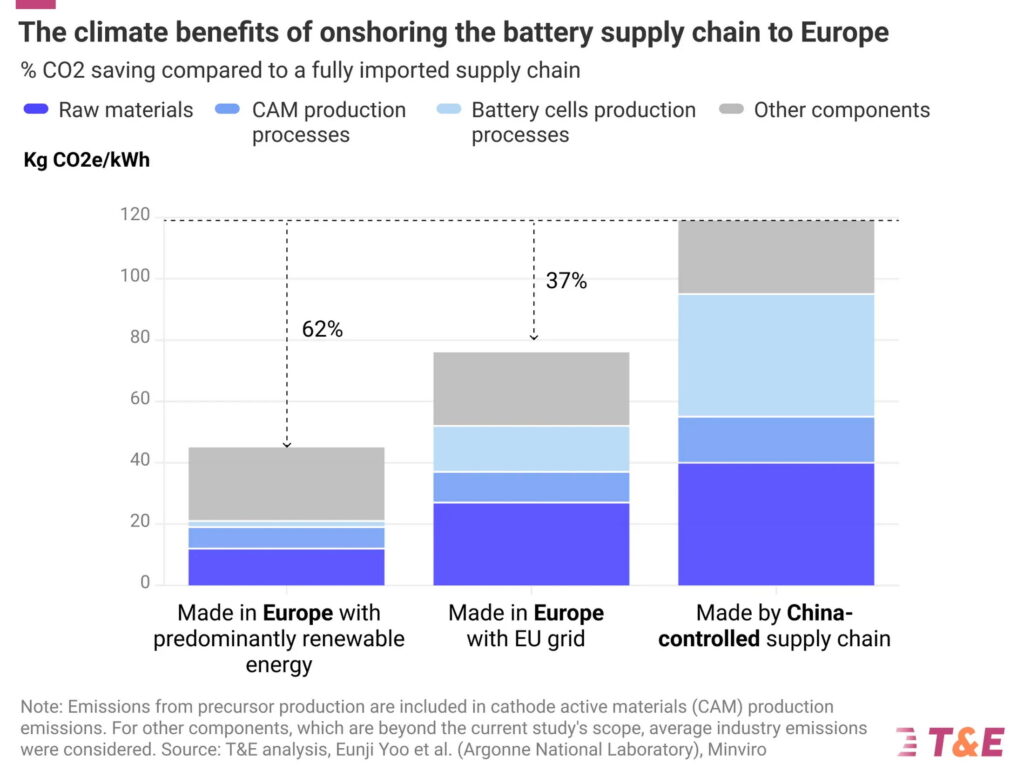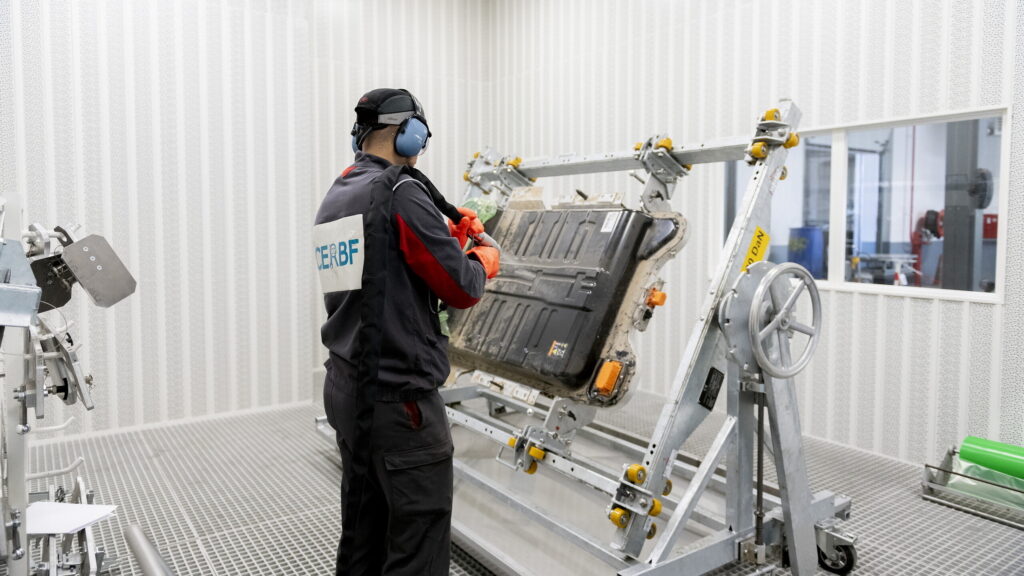- Moving battery production out of China and into Europe could cut emissions by 37 percent.
- If those same components were made using mostly renewable power, emissions could be reduced by as much as 60 percent.
- However, government action will be required to secure European battery manufacturing.
It has been well documented that batteries are among the most carbon intensive components in modern vehicles and make EVs dirtier to manufacture than internal combustion vehicles. However, significant progress could be achieved in making the European auto industry greener by moving battery manufacturing out of China and onto the Old Continent.
New analysis by Transport & Environment finds that by simply moving production to Europe, automakers could reduce the emissions associated with battery production by 37 percent. If the energy storage devices were made with mostly renewable power, CO2 output could be cut by as much as 62 percent.
Read: Swiss Climate Protestors Cover Audis In Orange Dust, Paint Porsche Dealer Wall Orange
“Batteries, and metals that go into them, are the new oil. European leaders will need laser sharp focus and joined-up thinking to reap their climate and industrial benefits,” said Julia Poliscanova, T&E’s senior director of e-mobility supply chains. “Strong sustainability requirements, such as the upcoming battery carbon footprint rules, can reward local clean manufacturing.”
However, Poliscanova says that Europe needs better tools to promote investments in domestic gigafactories. More than half (53 percent) of battery production that has been announced for Europe is at “medium or high risk” of being delayed, downsized, or completely canceled without government support.

However, there is good news for the planet, as 47 percent of production locations planned for Europe by 2030 have been secured (meaning it is at very low risk of being delayed or cancelled), which is up from around 33 percent a year ago.
“The battery race between China, Europe and the US is intensifying. While some battery investments that were at risk of being lured away by US subsidies have been saved since last year, close to half of planned production is still up for grabs,” said Poliscanova. “The EU needs to end any uncertainty over its engine phase-out and set corporate EV targets to assure gigafactory investors that they will have a guaranteed market for their product.”





